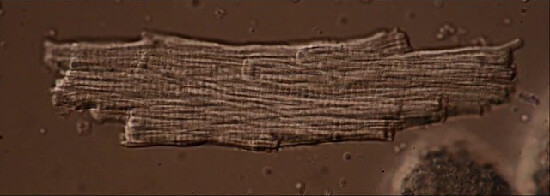Here’s an interesting reply:
Actually, it could have worked either way, but the two-word option made it really awkwardly phrased.
Here’s an interesting reply:
Actually, it could have worked either way, but the two-word option made it really awkwardly phrased.
I understand the problem of telling or determining goes back to the problem of observing an uncaused cause.
I also know that I have the ability to make choices, even if it is something as simple as picking a number between 1 and 10.
“We have to believe in free will, we have no choice.” I.B. Singer ![]()
That problem is overcome in quantum physics all of the time.
You believe you are making choices.
At best your statement is that something happens without cause
Like believing I can snap my fingers and then it happens
One example is radioactive decay. It just happens, in an instance. It is not deterministic.
Just like ChatGPT can output answers to questions.
You believe your choices are predetermined and that you are not responsible for them? ; - )
It’s a good example of a happening that does not have an observable cause
The intention for me is unmistakable or self-evident. I can’t say the same for other such claims on the internet nowadays.
All I am saying is that we believe we are making choices, but we aren’t exactly the best narrator for the actual neurobiology that is ticking away in the background.
We also believe that we are responsible for our own actions, as do others. Do we have a choice in those beliefs?
One interesting study:
Neuroscientists can actually predict our choices before we become conscious of them. That’s pretty crazy. Not only that, but our choices appear to be affected by the condition of our brain at that moment.
How do you know you are right? How can you confirm it independently of your beliefs?
But all it takes is a single choice to be consciously made for determinism to be false.
Funny how it’s possible with radioactive decay, but not for you.
ChatGPT chooses what to give as an answer. Does that falsify determinism?
Inanimate electronics is quicker than neurons, by a lot.
It can be programmed to say it does, which it currently doesn’t, but just because it says it, doesn’t mean that it makes a choice.
I guess that all depends on how we define choice. You say that you make a choice, but how is that different than ChatGPT saying it made a choice? If neuroscientists can predict what choice you are going to make eleven seconds before you are even conscious of that choice, then how can we rely on our conscious mind to tell us about the process of making choices? Neuroscientists can even predict what our movements will be before we are conscious of those decisions:
I think that is a very fair description. It’s complicated. I don’t think it is as simple as “I feel like I make choices”.
That’s pretty obvious when you consider that we are talking about processing speeds in GHz.
So no surprise.
It is complicated. I am vaguely familiar with these studies and this is why I said all it takes is a single person making a conscious decision for it to be true that a person can act without being acted upon.
The psychology of the mind is a wild landscape as people are capable of having the experience of more than a single mind.
Several factors could be at play in these studies, as people do have the very real capacity to act mindlessly.
I think it’s helpful to see it as an emergent phenomenon, as we are contingent in being and necessary with respect to our actions… that is when we act of course.
Not unrelated:
Since they have only compared human and rat dendrites they seem to be overselling the uniqueness of human dendrites a bit. Would be interesting to see how dendrites from other primate species behave. Cetacean and even cephalopod dendrites would be interesting as well. Reminds me a bit of a project I worked on where I had to harvest cardiomyocytes from mouse hearts and use electrical stimulation to pace them under a microscope. Ugh, I hated that project, so tedious. After staring at those cells for hours at a time I started seeing them in my dreams.

“Let your conversation be always full of grace, seasoned with salt, so that you may know how to answer everyone.” -Colossians 4:6
This is a place for gracious dialogue about science and faith. Please read our FAQ/Guidelines before posting.